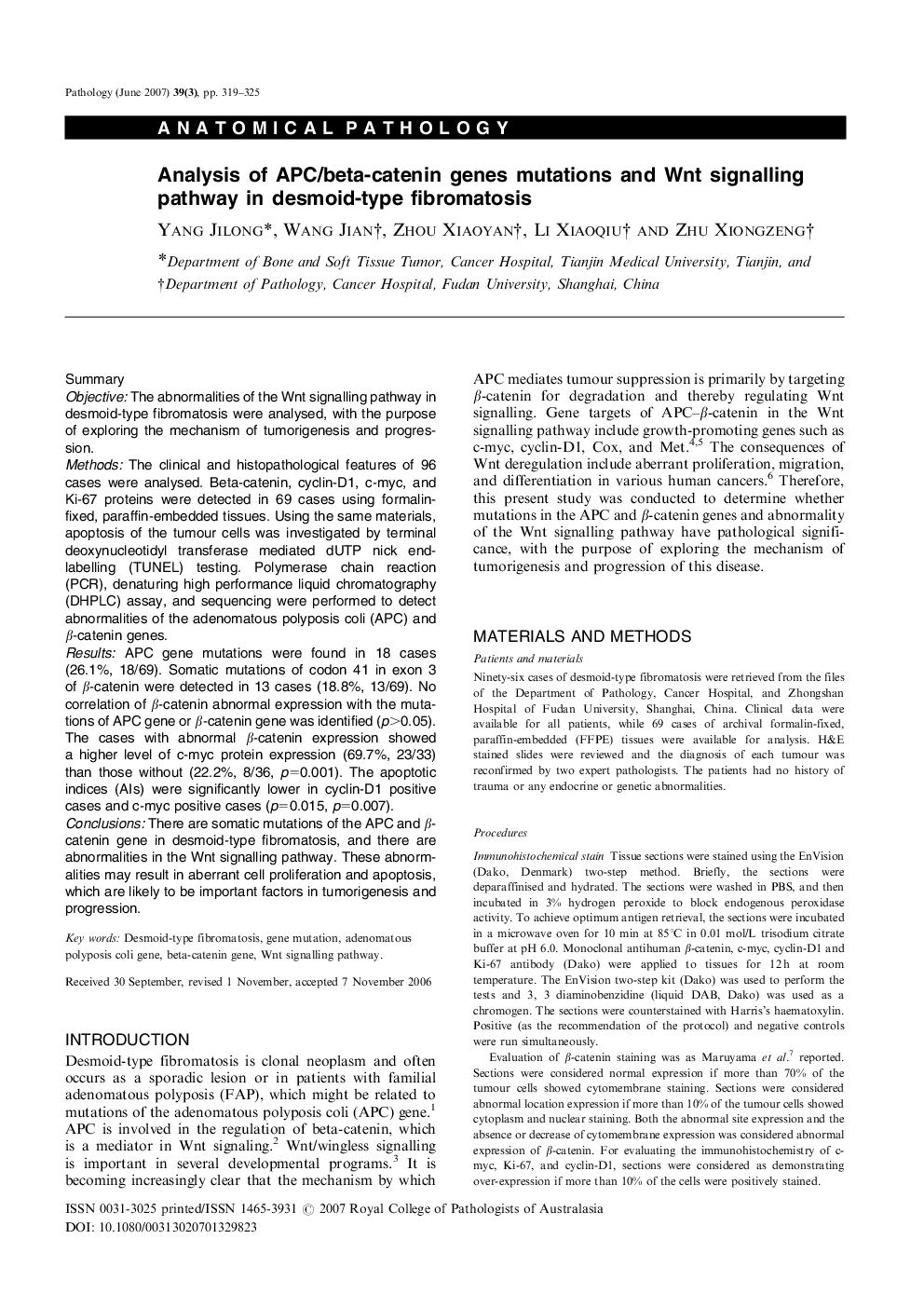| Article ID | Journal | Published Year | Pages | File Type |
|---|---|---|---|---|
| 106093 | Pathology | 2007 | 7 Pages |
SummaryObjectiveThe abnormalities of the Wnt signalling pathway in desmoid-type fibromatosis were analysed, with the purpose of exploring the mechanism of tumorigenesis and progression.MethodsThe clinical and histopathological features of 96 cases were analysed. Beta-catenin, cyclin-D1, c-myc, and Ki-67 proteins were detected in 69 cases using formalin- fixed, paraffin-embedded tissues. Using the same materials, apoptosis of the tumour cells was investigated by terminal deoxynucleotidyl transferase mediated dUTP nick endlabelling (TUNEL) testing. Polymerase chain reaction (PCR), denaturing high performance liquid chromatography (DHPLC) assay, and sequencing were performed to detect abnormalities of the adenomatous polyposis coli (APC) and ß-catenin genes.ResultsAPC gene mutations were found in 18 cases (26.1%, 18/69). Somatic mutations of codon 41 in exon 3 of ß-catenin were detected in 13 cases (18.8%, 13/69). No correlation of ß-catenin abnormal expression with the mutations of APC gene or ß-catenin gene was identified (p>0.05). The cases with abnormal ß-catenin expression showed a higher level of c-myc protein expression (69.7%, 23/33) than those without (22.2%, 8/36, p = 0.001). The apoptotic indices (AIs) were significantly lower in cyclin-D1 positive cases and c-myc positive cases (p = 0.015, p = 0.007).ConclusionsThere are somatic mutations of the APC and ß-catenin gene in desmoid-type fibromatosis, and there are abnormalities in the Wnt signalling pathway. These abnormalities may result in aberrant cell proliferation and apoptosis, which are likely to be important factors in tumorigenesis and progression.
